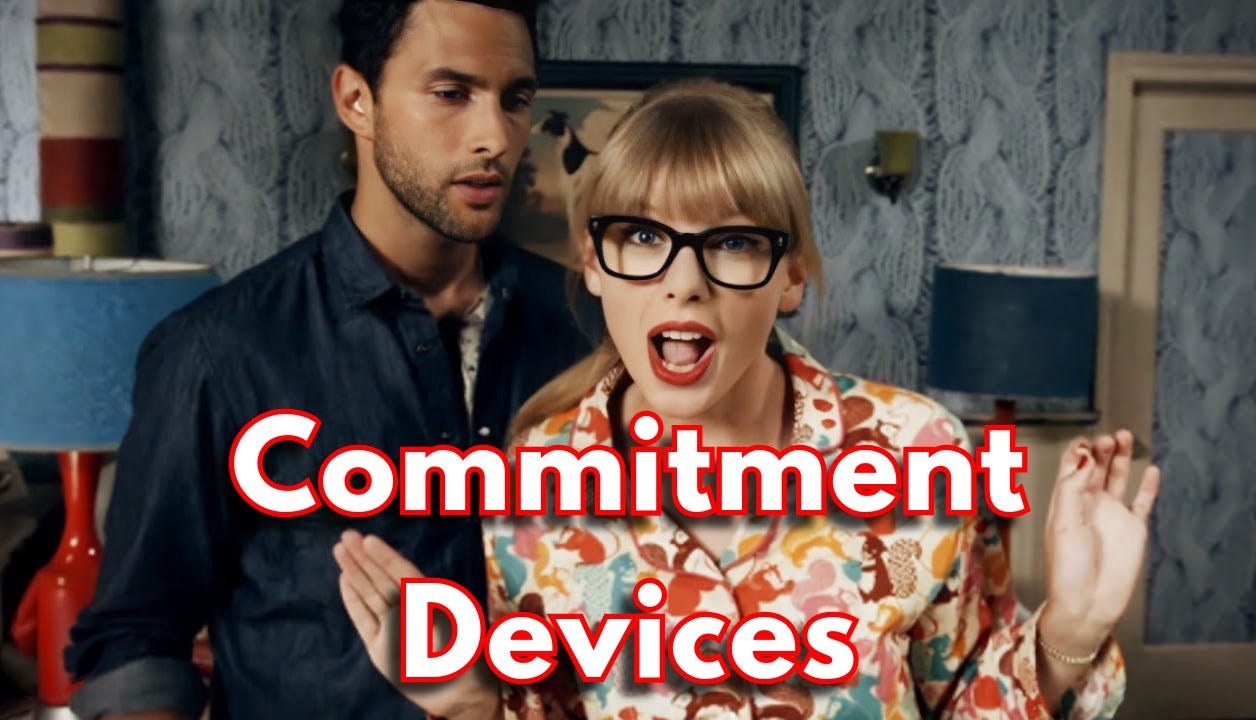Behavioral Economics Lessons from Taylor Swift
Swift’s songs can teach about the interaction of economics and psychology, sunk costs, and rationality
Taylor Swift provides more than just catchy lyrics, her songs provide insights into the way economists think about the world. In the first article, we showed how her songs provide lessons on tradeoffs, labor markets, and risk with three songs: august, Superman, and Blank Space.
This time, we’re diving into behavioral economics—where psychology meets decision-making—using Shake It Off and We Are Never Ever Getting Back Together. These songs give us insight into commitment devices, sunk costs, and how to make better choices.
Lesson 4: Behavioral Economics – “We Are Never Ever Getting Back Together”
Economists assume we make rational, forward-looking decisions, but behavioral economics recognizes that we often let emotions and biases take over. Enter We Are Never Ever Getting Back Together.
When Swift declares that "We are never ever getting back together." she is creating a commitment device. By making this breakup public (and turning it into a chart-topping hit), she’s raised the emotional and social cost of going back on her word. Commitment devices work by increasing the future cost of doing something we know is bad for us, like returning to a toxic relationship.
Where else can commitment devices work? Retirement spending accounts are a good example. In the US some retirement accounts have restrictions from withdrawing until a person is 59 1/2 years old, making it expensive for someone to withdraw funds for other purposes. If people were perfectly rationale, they wouldn’t need to restrict withdrawals. But humans are not robots, so these types of devices help people keep money in retirement accounts.
Lesson 5: Sunk Costs & Rationality – “Shake It Off”
One of the most common mistakes in decision-making is succumbing to the sunk cost fallacy. Sunk costs are previously incurred costs that don’t impact future decisions. The sunk costs fallacy occurs when people or organizations take sunk costs into account.
Swift’s mantra in Shake It Off is the antidote:
"’Cause the players gonna play, play, play, play, play... Baby, I'm just gonna shake, shake, shake, shake, shake..."
By shaking it off, Swift refuses to dwell on past hurts, gossip, or bad decisions. Instead of letting sunk costs influence her, she moves forward. Economists would say she’s ignoring sunk costs - the irrelevant past costs. She only focuses on future benefits and costs.
Final Thoughts
Taylor Swift isn’t just a global superstar—she provides a surprisingly sharp lens for understanding economics. From risk-taking in Blank Space to rationally “shaking it off,” her lyrics remind us that the principles of economics are everywhere, even in our playlists.




